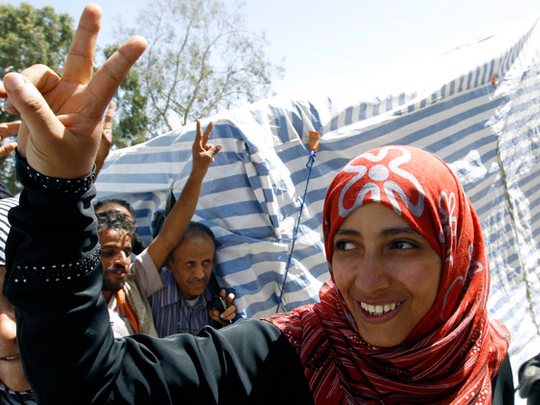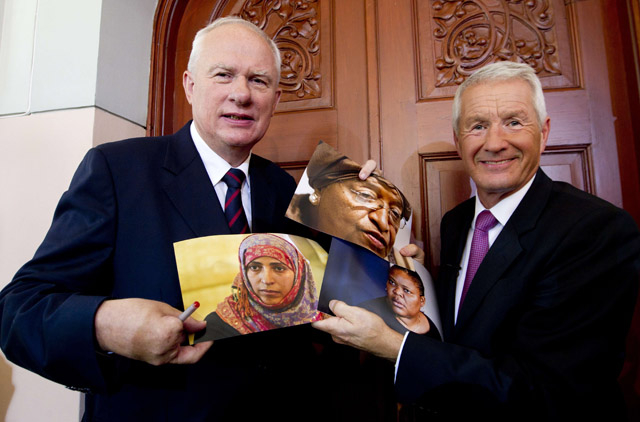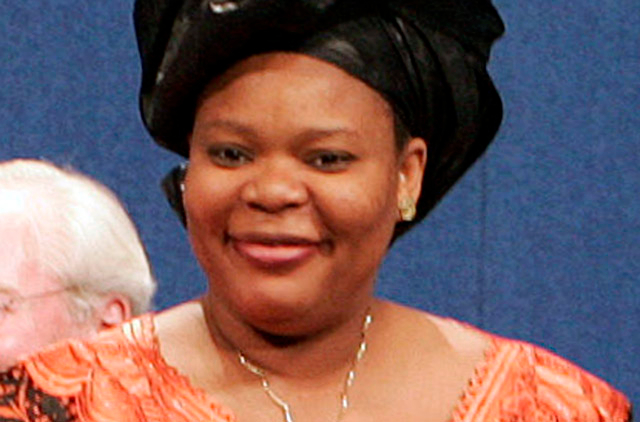
Oslo: Yemeni women's rights and democracy activist Tawakul Karman won the Nobel Peace Prize on Friday, along with Liberian President Ellen Johnson-Sirleaf and her compatriot Leymah Gbowee, who mobilised fellow women against their country's civil war.
The award will be seen as a strong signal in favour of the empowerment of women, especially in the developing world.
Karman, a 32-year-old mother of three, is an outspoken journalist and human rights activist who has staged sit-ins to demand the release of political prisoners from jail — a place she has been several times herself.
She said her win was to lend support to the pro-democracy drive in her country and the Arab world.
"The whole Yemeni and Arab people are certainly happy about this win," Karman, 32, told broadcaster Al Jazeera.
"This win will provide a strong support for the pursuit of justice and reform," she said.
Born in the southern Yemeni city of Taiz on February 7, 1979, Karman has been arrested more than once for her pro-democracy activism.
In January, she was briefly arrested for allegedly leading unlicensed protests and inciting anarchy in Yemen.
The Norwegian Nobel Committee that attributes the prize had a record 241 individuals and organisations on its top secret list, but narrowed it down to three.
It is the first time in seven years that a woman, or women in this case, have won the award.
The three women - who have campaigned for rights and an end to violence in Liberia and Yemen - will share the prize worth $1.5 million.
"We cannot achieve democracy and lasting peace in the world unless women obtain the same opportunities as men to influence developments at all levels of society," Committee chairman Thorbjoern Jagland told reporters.
"The Nobel Peace Prize for 2011 is to be divided in three equal parts between Ellen Johnson-Sirleaf, Leymah Gbowee and Tawakkul Karman for their non-violent struggle for the safety of women and for women's rights to full participation in peace-building work."
The Committee added: "In the most trying circumstances, both before and during the Arab Spring, Tawakkul Karman has played a leading part in the struggle for women's rights and for democracy and peace in Yemen."
"It is the Norwegian Nobel Committee's hope that the prize to Ellen Johnson-Sirleaf, Leymah Gbowee and Tawakkul Karman will help to bring an end to the suppression of women that still occurs in many countries, and to realise the great potential for democracy and peace that women can represent."
Liberian President Ellen Johnson-Sirleaf, the first elected female head of state in Africa, is running for re-election next week and is widely seen as a pioneer for women's rights.
Her compatriot, Gbowee, mobilised fellow women against Liberia's civil war including by organising a "sex strike".
Ghonim congratulates Karman
Egyptian cyber activist Wael Ghonim, who was touted as a Nobel Peace Prize candidate, congratulated the Yemeni activist who shared the honour with two Liberians for her "well deserved win".
"Congratulations to Tawakul Karman for her well deserved win," Ghonim posted in a Twitter message, describing himself as "a proud Arab."
"Our real prize is for our countries to be more democratic and more respectful of human rights," Ghonim said.
Ghonim was among three Egyptian cyber activists - including Esraa Abdul Fattah and Ahmad Maher- whose names had been floated as possible winners for their contribution to protests that ended the 30-year authoritarian rule of Hosni Mubarak.















